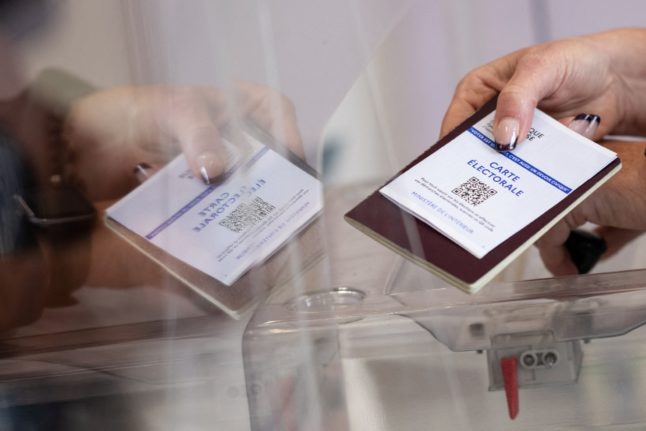If you were previously an EU citizen you may have already been eligible to vote in local and European elections, but only French citizens can vote in presidential and legislative elections.
Non-EU citizens, however, have no voting rights in France – so for many people becoming French also means being re-enfranchised to vote in the country where they live.
READ ALSO
- The ultimate guide for how to get French citizenship
- How soon after gaining citizenship can you get a French passport?
- The hack to find out early about your French citizenship application
Anyone who has become French since 2019 benefits from automatic registration in the liste électorale. This means that most people can be eligible to vote shortly after acquiring French nationality.
Once you receive confirmation of your French citizenship, you can go online and double check you are registered using the Service-Public website.This will also inform you of where to go to cast your vote on election day.
After that, there is one more step: you still need to verify that you are also on the additional, annually updated, roll in order to take part in individual elections. You can do this online, here.
Be sure to double check that you are registered for both municipal and European elections. You can also do this process in person at your local mairie if you prefer.
Once you have gone through those steps – which may not take more than a few minutes, depending on your situation – then you should be eligible to vote in France.
What if I am not registered?
If you have only recently acquired French nationality, then you should be on the electoral list. However, if you are not, then you can make sure your registration is in order at your local mairie’s offices. You will need:
- Proof of identity;
- Proof of nationality (a passport or certificate of naturalisation);
- Proof of address (a rent receipt, tax return, water or electricity bill);
- A completed vote registration form – find that here
What to bring when voting
When you go to vote, you need a form of identification in most towns, although municipalities of less than 1,000 inhabitants do not have this obligation. However, the head of the polling station in small towns might ask you to prove your identity in another manner.
For an ID, you have several options, including: a French national identity card (valid or expired for less than 5 years), a passport (valid or expired for less than 5 years), your Carte Vitale (as long as it has your photograph), a valid French military card (Carte du combattant), a valid French disability card (as long as it has a photograph), a valid driver’s licence, and even a hunting licence (as long as it has a photograph and was issued by the National Office for Hunting and Wildlife).
Technically, your voter registration card is not required to vote, but it is highly recommended.
READ MORE: A voté: How to register and cast your vote in France
How do you get a voter card?
The electoral card (carte électorale) is sent by post to your home at least three days prior to the first round of an election or referendum.
If your electoral card has not been distributed to you before the election or referendum, it is kept at the polling station. You can collect it by presenting an identity document.



 Please whitelist us to continue reading.
Please whitelist us to continue reading.
Member comments